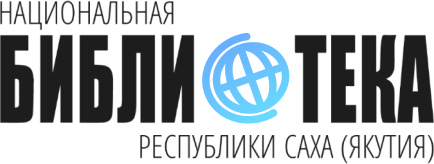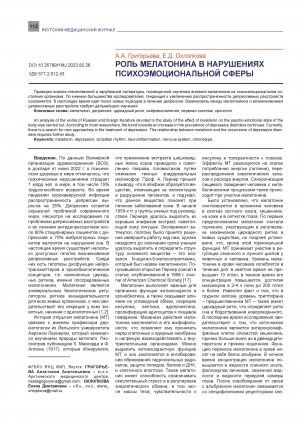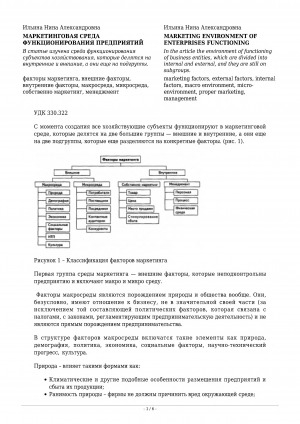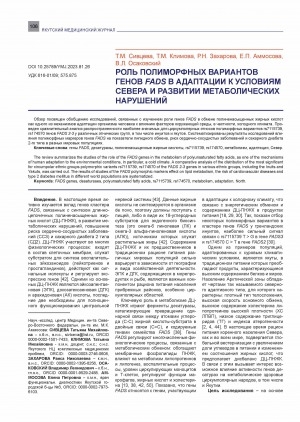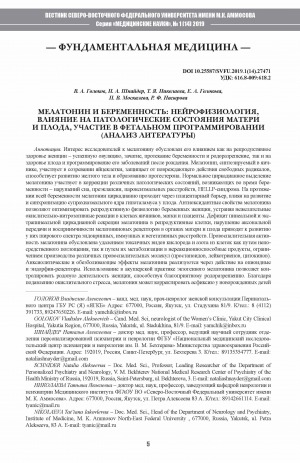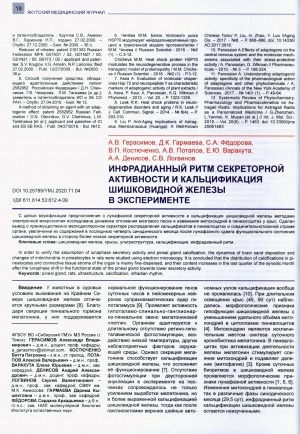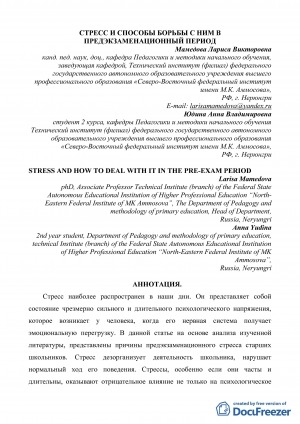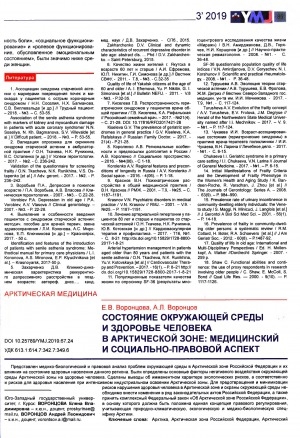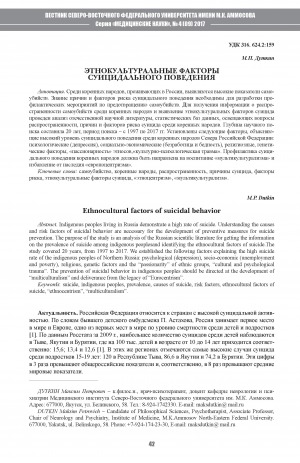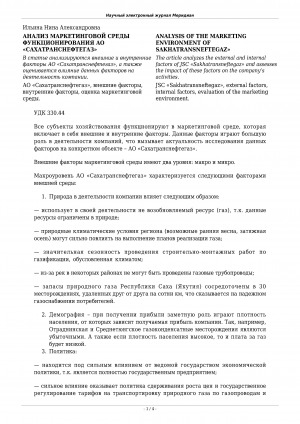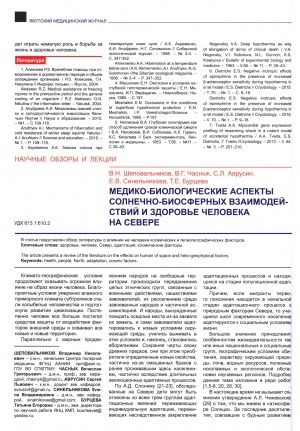В статье представлены результаты анализа литературных данных, посвященных молекулярно-генетическим механизмам контроля и регуляции циркадных ритмов, определяющих хронотип человека. Установлено, что нарушение циркадных ритмов может приводить к снижению устойчивости организма к воздействию стрессорных факторов с последующим развитием процессов дезадаптации, что в свою очередь может быть пусковым механизмом начала развития заболеваний. Известно, что молекулярно-генетический контроль циркадных ритмов состоит из взаимодействующих положительных и отрицательных обратных связей регулирующих петель Һчасовыхһ генов, таких как Bmal1, Clock, Per1, Per2, Per3, TIM, Npas2, Cry1 и Cry2, Csnk1d, Csnk1e, Rev-erbα, Rora, Bhlhe40, Bhlhe41, а также генов FBXL3, FTO, MADD, CYP2A6, ARNTL, Mel1a, Mel1b и GPR50 и др. Несмотря на то, что основные составляющие молекулярно-генетических механизмов циркадных ритмов уже установлены, вопрос регуляции их работы и взаимодействия между собой остается актуальным. Таким образом, понимание молекулярных механизмов и определение генетических маркеров, вызывающих нарушение циркадных ритмов, является важным этапом для разработки методов, направленных на профилактику и коррекцию патологических состояний, обусловленных процессами дезадаптации
The article presents the results of the analysis of the literature data on the molecular genetic mechanisms of control and regulation of circadian rhythms that determine the chronotype of a person. It has been established that disturbance of circadian rhythms arising as a result of psychoemotional and physical stress expressed in degree and / or duration, can lead to a decrease in the body's resistance to stress factors with the subsequent development of maladjustment processes, which in turn can be a trigger mechanism for the onset of the development of such pathological conditions as diseases of the cardiovascular system, gastrointestinal tract, autoimmune, mental, neurodegenerative, oncological and other diseases. According to the results of numerous studies, the molecular genetic control of circadian rhythms consists of interacting positive and negative feedbacks of regulatory loops of clock genes, such as genes Bmal1, Clock, Per1, Per2, Per3, TIM, Npas2, Cry1 and Cry2, Csnk1d, Csnk1e, Rev-erbα, Rora, Bhlhe40, Bhlhe41, as well as genes FBXL3, FTO, MADD, CYP2A6, ARNTL, Mel1a, Mel1b and GPR50. The transcription factors encoded by these genes, enzymes, transporters, prohormones, signaling and other proteins are involved in regulation of daily frequency. Despite the fact that the main components of the molecular genetic mechanisms of circadian rhythms are already known, the issue of regulating their work remains relevant today. The results of studies carried out on different populations with respect to individual polymorphic variants of genes are not always unambiguous and require a more detailed study, since it is the result of the interaction of genes that can determine their phenotypic effect. Thus, understanding the molecular mechanisms and identifying genetic markers that cause disturbances in circadian rhythms is an important step in the development of methods aimed at preventing and correcting pathological conditions caused by maladjustment processes

